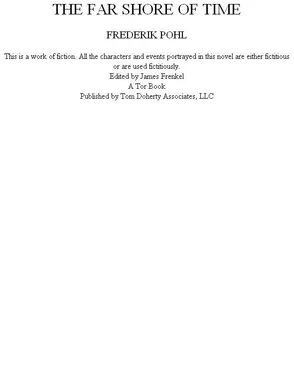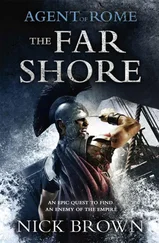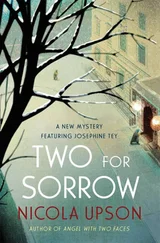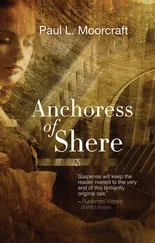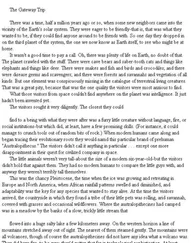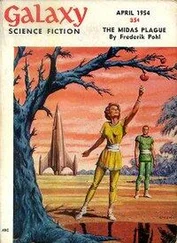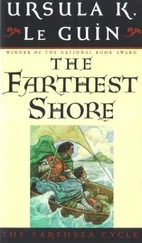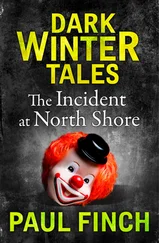Pohl, Frederik - The Far Shore of Time
Здесь есть возможность читать онлайн «Pohl, Frederik - The Far Shore of Time» весь текст электронной книги совершенно бесплатно (целиком полную версию без сокращений). В некоторых случаях можно слушать аудио, скачать через торрент в формате fb2 и присутствует краткое содержание. Жанр: Старинная литература, на английском языке. Описание произведения, (предисловие) а так же отзывы посетителей доступны на портале библиотеки ЛибКат.
- Название:The Far Shore of Time
- Автор:
- Жанр:
- Год:неизвестен
- ISBN:нет данных
- Рейтинг книги:3 / 5. Голосов: 1
-
Избранное:Добавить в избранное
- Отзывы:
-
Ваша оценка:
- 60
- 1
- 2
- 3
- 4
- 5
The Far Shore of Time: краткое содержание, описание и аннотация
Предлагаем к чтению аннотацию, описание, краткое содержание или предисловие (зависит от того, что написал сам автор книги «The Far Shore of Time»). Если вы не нашли необходимую информацию о книге — напишите в комментариях, мы постараемся отыскать её.
The Far Shore of Time — читать онлайн бесплатно полную книгу (весь текст) целиком
Ниже представлен текст книги, разбитый по страницам. Система сохранения места последней прочитанной страницы, позволяет с удобством читать онлайн бесплатно книгу «The Far Shore of Time», без необходимости каждый раз заново искать на чём Вы остановились. Поставьте закладку, и сможете в любой момент перейти на страницу, на которой закончили чтение.
Интервал:
Закладка:
“You go ahead, Beert,” I said. “I think Kofeeshtetch still has some questions for me, so I’ll stay a bit.”
It took me about thirty seconds to get the kid juiced up again-he was, after all, a kid. All I had to do was to ask him if he would please grant me the favor of telling me how his ancestors had captured this installation. That did it. He was off, and then all I had to do was make the appropriate thrilled noises from time to time.
His story was full of Horch names that I didn’t retain, and matters of who took precedence over whom that I didn’t understand in the first place. Most of it, though, was blow-by-blow descriptions of how his parents’ technicians had managed to insert their fighting forces into the Others’ channel. And how the first wave of Horch fighting machines had been destroyed in a few moments. And how the Horch had sneaked a second wave in through a different transit machine while the defenders were distracted by what was happening at the first one. And—
And on and on. Kofeeshtetch loved the subject. He acted it out, with limbs and neck flying in all directions. It was interesting to me, too, as an insight into how the Horch did their fighting ... but, at that moment, not very. I wanted to get on to my own problem, but I didn’t want to interrupt.
When Kofeeshtetch got to the point where their Horch robots were mopping up the rags and tags of flesh that was all there was left of the Others’ warriors, I began to hope for an ending. “The Greatmother has told me,” he was saying proudly, “of how vile the stench of those decomposing corpses was, so that for a time it was difficult to breathe, even more difficult to eat without vomiting. To carry on the work of this installation was very hard.”
Carry on? I did interrupt him then. “But this was an Others’ installation. Why would you want to carry on their work?”
He gave me a scornful hiss, thrusting his head in my face. His breath was not nearly as inoffensive as Beert’s. “Of course it had been operated by the Others. What of it? The Others are filthy vermin, but there are some few objectives we share in common. Do you want to hear the story of my parents or do you not?”
I wanted to hear what those common objectives were, but I wanted even more to get to my own desires. “Your parents were very, very brave,” I said with admiration. “I only hope that I can be as brave, and as successful, when I too fight against the Others.”
Kofeeshtetch swayed his neck indecisively back and forth for a moment. I could see that he was reluctant to give up his favorite subject, but he was torn.
I understood his dilemma. When my uncle Max Adcock, the not-very-successful buccaneer capitalist, told me about the next great stock raid or franchise operation that was going to make him rich at last, if only Uncle Cubby would help him out with a little seed capital, I always listened. To the ten-year-old I was at the time, it was exciting. I don’t mean that I liked Uncle Max. Apart from the fact that he was my cousin Pat’s father, I didn’t have much use for the man. Kofeeshtetch didn’t have a lot of use for lower organisms like me, either, but he had the same yearning to hear about exciting adventures. “Tell me your plan,” he said sulkily.
Actually, the word “plan” was a lot more dignified than my hazy notions deserved, but I did my best. I said, “A scout ship of the Others is somewhere near my home planet. With your Greatmother’s gracious permission, and assuming the proper channels can be accessed, I am going to invade it and kill everyone aboard.”
“Hum,” he said-actually, it was more like an approving growl. But he looked puzzled. “What do you mean by a ‘scout ship’?”
It was my turn to be puzzled. Neither Beert nor Pirraghiz had had any difficulty knowing what I was talking about, so why did he? I floundered. “In order to discover civilizations like mine, the Others send out exploring vessels which travel slower than light speed. When they find one-“
“Yes, yes,” he said, sounding impatient. “But such vessels come in many varieties, both for us Horch and the Others. Which kind do you mean?”
I winced. It had never occurred to me that there might be different kinds. But I said staunchly, “Whatever kind is there. It doesn’t matter. I will slip aboard and start shooting. Only,” I added, “there is a problem. I won’t be able to do any of that unless I have weapons and a scrambler to disrupt their communications, like those the Wet One had. Now those are gone-“
Kofeeshtetch was waving his arms reprovingly. “You are so ignorant,” he complained. “All such patterns are stored in the transit machine. It would be quite simple to make copies if there were any point to it, but is there? I am not satisfied that your plan is good.”
He meditated for a moment, then gave a decisive neck-swirl. “I wish to see this scout ship for myself.” He turned his head to the nearest Christmas tree and barked, “I am waiting! Haven’t you found that planet for me yet?”
You wouldn’t think a Christmas tree could look embarrassed, but this one’s branches and twiglets hung low. “We have not yet made a positive identification.”
That bugged me. “Of course you can do it! You’ve been relaying data from it for months!”
The robot didn’t extend even one tiny spring in my direction. To Kofeeshtetch it said, “Relays occur automatically. We have traced all such, but there are two eights of planets transmitting this sort of data. Can this organism say whether his people use radio?”
I resisted an impulse to laugh. “Oh, yes. All the time,” I said.
Still to the Horch: “That eliminates some. Then how many moons does this planet have?”
“One big one.”
“Then, Kofeeshtetch,” the robot said, shooting out a sprig of needles to touch the controls of the screen, “it is likely that this is the planet you seek.”
And when the picture had formed in the bowl, it was.
I could see the dagger of India stabbing down into the Indian Ocean, with the little island of Sri Lanka dripping off its tip. As the planet slowly spun I could see Africa emerge, and the beginnings of Europe. There was something strange about the image, though. Tiny dots of reddish light that I had never seen before were sprinkled around the globe. But there was no doubt what I was looking at. I swallowed. “That’s the Earth,” I said, suddenly homesick.
Kofeeshtetch was not sentimental. “Not the planet!” he snapped at the robot. “Isn’t there a survey vessel of the Others nearby?”
“We have identified one, yes. Here is a plot of its transit machines-“
Three or four of those reddish lights appeared, close together, against a background of stars. It was the stars, more than those little lights, that made me catch my breath. This was none of that awful intergalactic black, nor all those multicolored headlights of the globular cluster. These were my own stars, the very constellations you can see from Earth. I recognized at least one of them, the seven stars in a cup-and-handle pattern that every child knows as the Big Dipper.
Kofeeshtetch wasn’t interested in stargazing. “So many transit machines,” he muttered. “Can we see the ship itself?”
At once stars and ruddy lights vanished and we were looking at another set of children’s Tinkertoys. “We have no view of the specific craft, but it is probable that it is this model,” the robot said.
It looked to be smaller than the nexus itself, or at least a little less complicated, but it impressed Kofeeshtetch. “But this is no mere robot scout! It must be in fact a major vessel of the Others.” He swung his head to face mine. “You could not possibly succeed in attacking it single-handed! It will be staffed with many, many warriors of the Others, all better armed than you. Such a venture would require a full-scale assault, almost as large as the one with which our nest stormed this place.”
Читать дальшеИнтервал:
Закладка:
Похожие книги на «The Far Shore of Time»
Представляем Вашему вниманию похожие книги на «The Far Shore of Time» списком для выбора. Мы отобрали схожую по названию и смыслу литературу в надежде предоставить читателям больше вариантов отыскать новые, интересные, ещё непрочитанные произведения.
Обсуждение, отзывы о книге «The Far Shore of Time» и просто собственные мнения читателей. Оставьте ваши комментарии, напишите, что Вы думаете о произведении, его смысле или главных героях. Укажите что конкретно понравилось, а что нет, и почему Вы так считаете.
